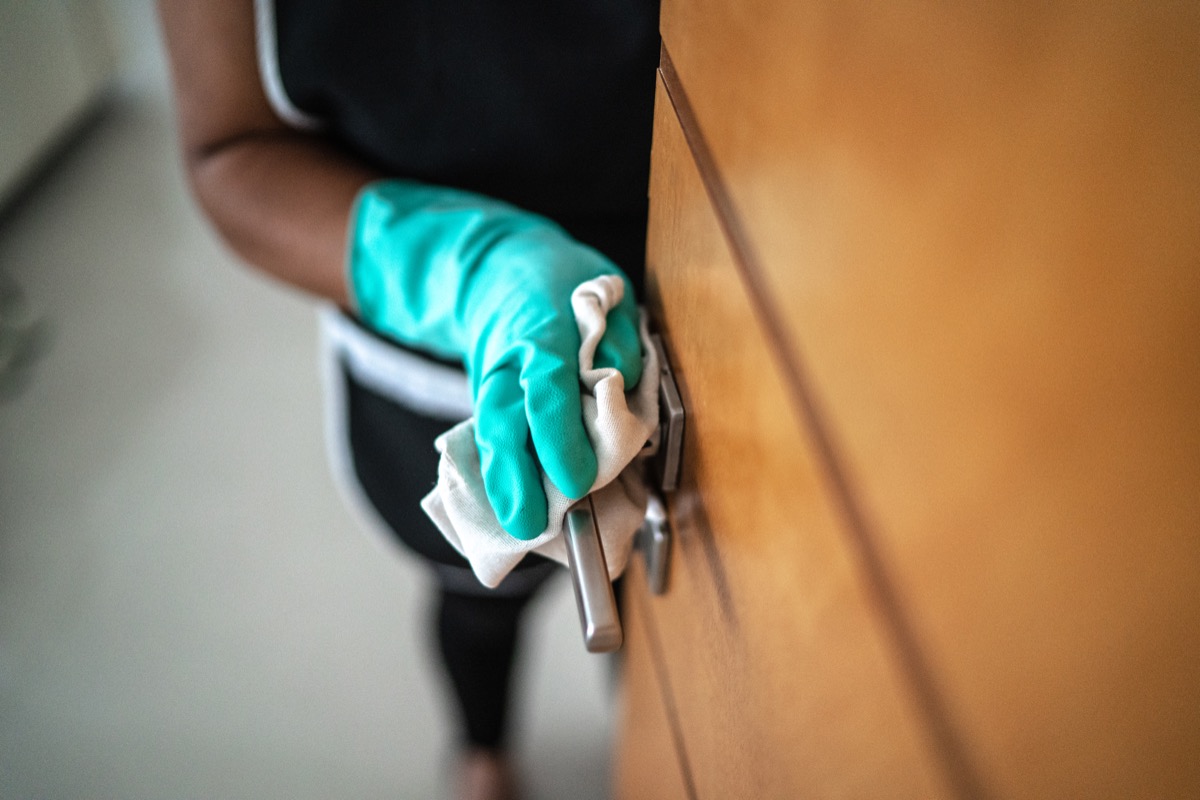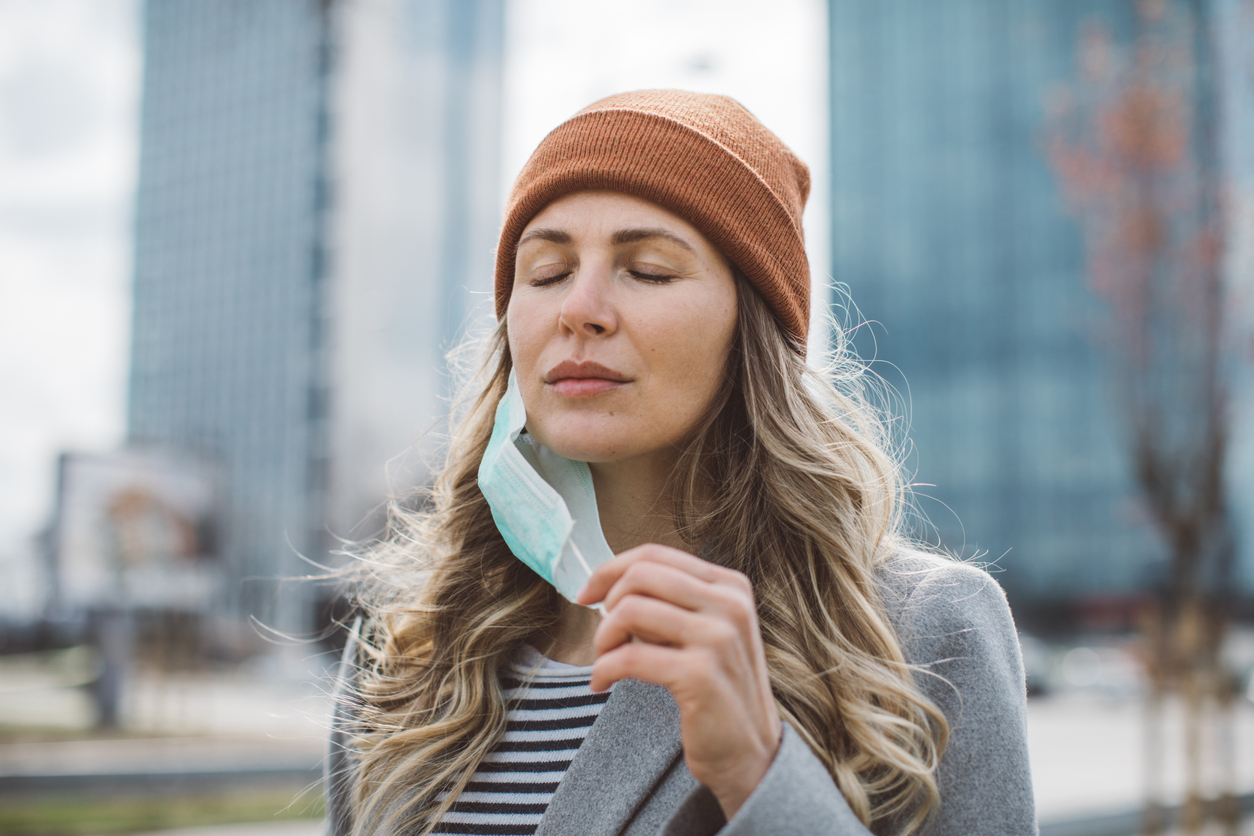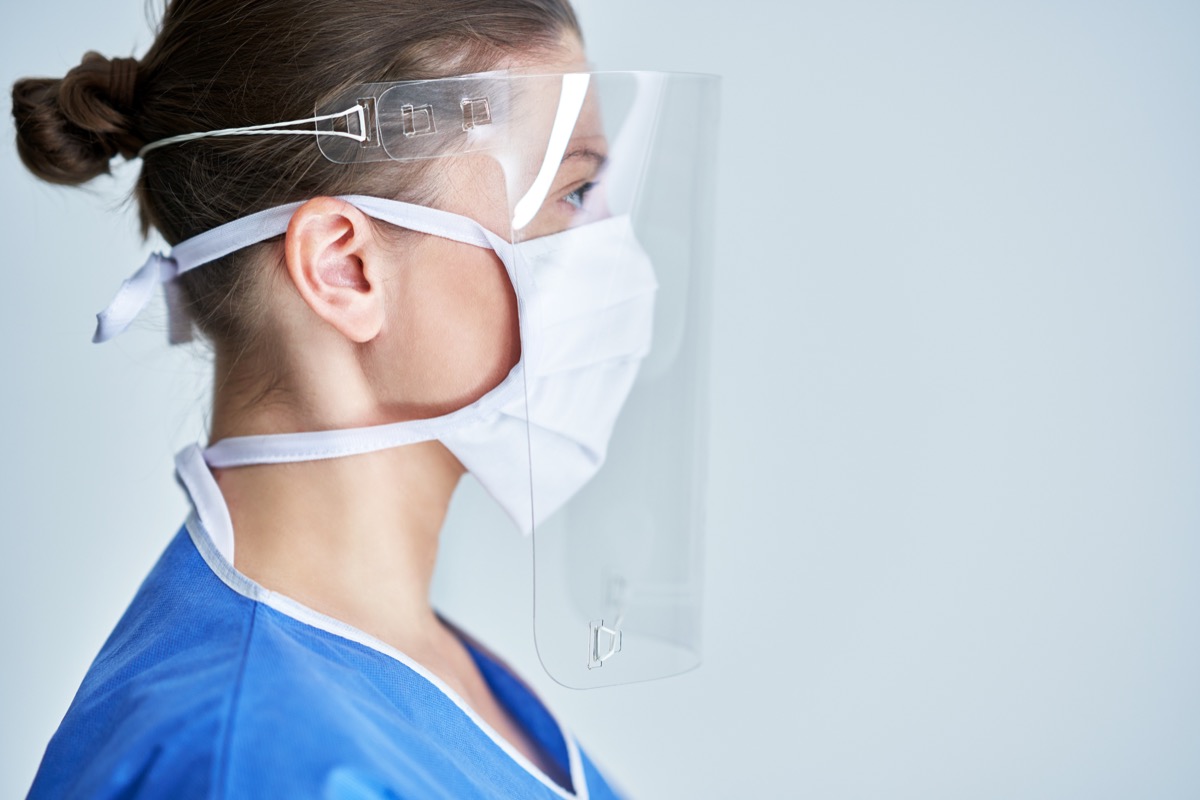Adapting your daily life to stay safe from the coronavirus has forced us all to make many changes over the past year, including the act of disinfecting groceries, mail, packages, and surfaces around the home and in public. But mounting research has led medical experts to advise that such precautions take a lot of effort, while providing little in the way of protection, suggesting that other methods can be more effective while also saving time and energy.ae0fcc31ae342fd3a1346ebb1f342fcb “I want to be clear that nothing should change in terms of washing our hands and personal hygiene,” Hassan Vally, PhD, an epidemiologist with La Trobe University in Australia, told The Guardian. “We can, however, be less anxious about washing every surface 20 times a day, and just concentrate on good hand hygiene and social distancing, and staying home when sick, which should be more than enough to stop us from spreading the virus.” And for more on where the virus is taking a turn for the worse, check out COVID Numbers Are Now Spiking Again in These 10 States. Another expert pointed out that much of the early data that suggested surface contamination was a potential threat were too lab-focused to apply to the real world. “In my opinion, the chance of transmission through inanimate surfaces is very small, and only in instances where an infected person coughs or sneezes on the surface, and someone else touches that surface soon after the cough or sneeze (within 1–2 hours),” Emanuel Goldman, PhD, a professor of microbiology at Rutgers University, wrote in a commentary published in medical journal The Lancet in July. “I do not disagree with erring on the side of caution, but this can go to extremes not justified by the data.” And for more on what does keep you safe from the virus, check out This Over-the-Counter Medication Can Kill COVID, Study Says. Vally also told The Guardian that the concept of “pandemic fatigue” was something that’s not only backed by evidence but also can have a major impact on the way we choose to keep ourselves and others safe. “There’s been a lot of psychological research done that says that we only have a certain amount of willpower and a certain amount of detail that we can focus our attention on,” Vally said. “To me as we learn more about the virus, we should make sure we are not being worried about things we shouldn’t be worried about, we don’t want to focus our attention on things disproportionate to the threat that they pose. That way, we will have more energy to focus on the things that are important, and that helps us to save money and time as well.” And for more COVID news delivered right to your inbox, sign up for our daily newsletter. Another expert pointed out that while keeping surfaces clean may create the feeling of safety, it actually can draw time, energy, and focus away from basic safety measures that could actually keep us safe. According to Peter Collignon, PhD, an infectious diseases physician and professor at the Australian National University, being near unmasked people while they talk, laugh, or sing is what drives the spread of the virus—and not just by inhaling particles. He cited a large study published in the Journal of the American Medical Association, which found that 19 percent of healthcare workers still became infected with COVID even while wearing three-layered surgical masks, surgical gloves, shoe covers, and using hand sanitizer. Introducing face shields to their protective measures, however, brought the number of worker infections to zero. “I think we’ve underappreciated how important the eyes are and overemphasized surfaces,” Collignon told The Guardian. And for more PPE advice, check out If You See This on Your Mask, the FDA Says Toss It Immediately.



